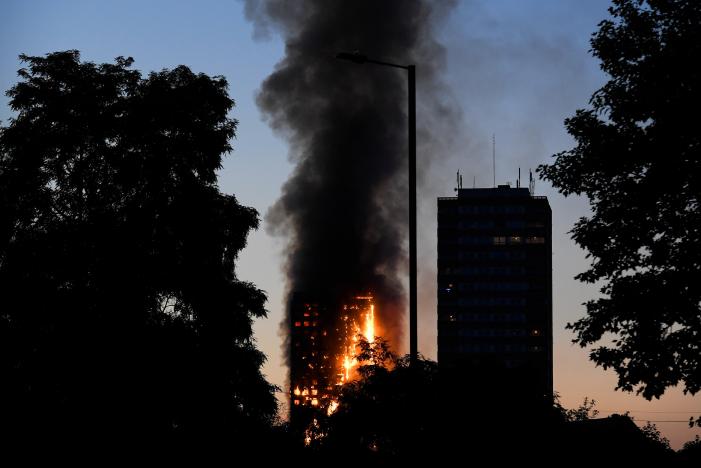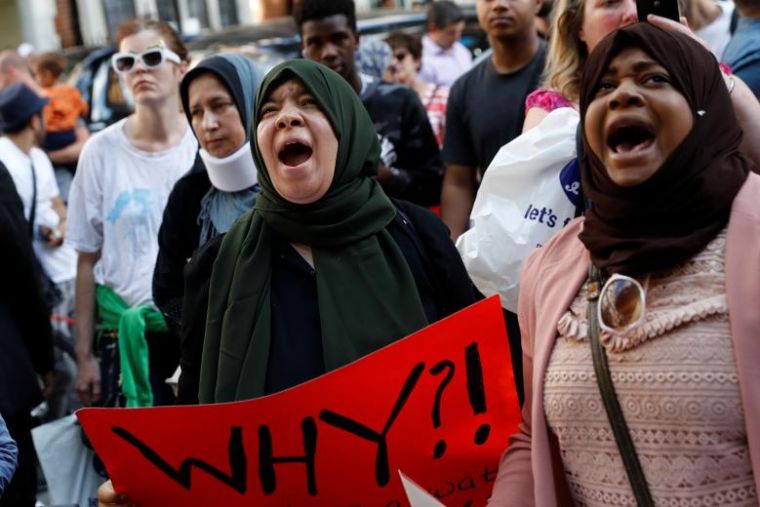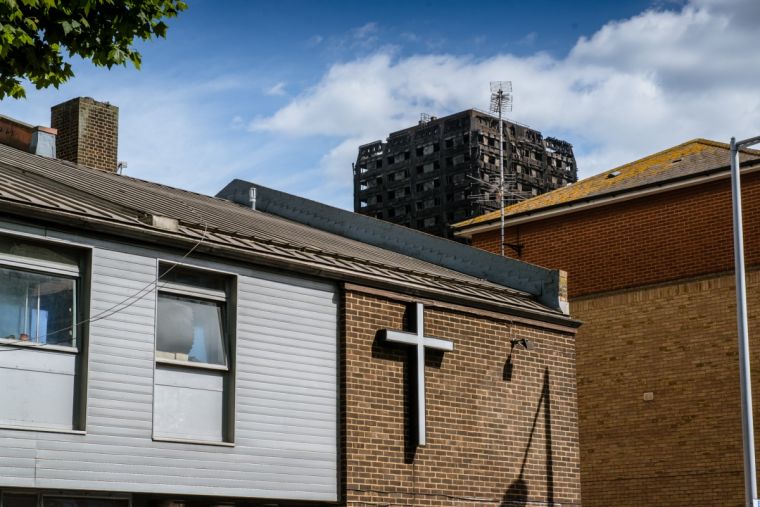Grenfell 6 months on: Why survivors are still angry
Six months after the Grenfell Tower disaster on 14 June, mourners and others have gathered at St Paul's Cathedral for a memorial service.
When news of the fire broke overnight, as hundreds trapped inside struggled to survive, no one, outside the tower at least, knew the lasting impact this tragedy would have on the local community and beyond.
Local faith leaders have spoken of how they recognised it would take up much of their job for hours, or days, but not months, or even their whole working lives.

It was a disaster which exposed a gulf in north Kensington, mirroring one in wider society. Churches and mosques and other places of worship immediately rose to the challenge, and as the Archbishop of Canterbury Justin Welby said this morning, there was an 'extraordinary community response' around the fire, but it was simply 'not right' this should happen in a tower block in 21st century London.
1. The death toll
Probably the most contentious aspect of the story was the death toll, which by the middle of November was finally announced as 71. But locally, among angry residents that figure is still disputed.
According to the campaign group Justice4Grenfell, the mistrust is down to a lack of recognition of the scale of the horror in the early days of the aftermath from authorities up to the Prime Minister Theresa May, who did not immediately visit the site, at one point instead bizarrely sending the House of Commons leader Andrea Leadsom.
Indeed, a day after the disaster, the death toll was officially only 17 people, even though it was clear from the pictures of people's missing loved ones that it was much higher than that.
The Justice4Grenfell activist Judy Bolton has said: 'If there had been transparency in the beginning, we wouldn't be sitting here doubting numbers.'
2. Rehousing
Next, there is the very current issue of rehousing.
May initially over-promised by pledging that victims would be rehoused within three weeks. Today, with fury running high, only one in five of the Grenfell Tower households has been permanently rehoused.
Last month, the government's own independent Grenfell recovery taskforce said the process had been 'painfully slow'.
According to the Kensington MP Emma Dent Coad, on Christmas day there will be 200 children including some from affected neighbouring blocks, 'stuck in hotels'.

According to the Royal Borough of Kensington and Chelsea's (RBKC) latest figures, reported in the Guardian, 45 of the 210 households from the tower are in new permanent homes and 54 in temporary homes. Meanwhile, 66 households have not yet accepted offers and remain in emergency accommodation including hotels, with the remainder having accepted offers of permanent or temporary homes but have not yet moved.
RBKC has said that it had bought over 250 homes to meet the backlog, stressing that some people were not yet ready to move.
3. Doubts over the public inquiry and justice for the victims
Then there is the issue of the public inquiry, also a cause of frustration and anger for local residents.
A lack of community representation alongside the judge, Sir Martin Moore-Bick, is cited as part of the problem, and this week, 17,000 people had signed a petition demanding greater community involvement in the inquiry.
Many local people want to see those responsible in various different ways jailed. Such calls have been led by the Tottenham MP David Lammy, who has repeatedly spoken in deeply moving terms about the Dickensian nature of the tragedy.
Scotland Yard is looking into possible individual and corporate manslaughter charges.
As Bellal El Guenini, a survivor, told MPs this week: 'We had 71 people murdered in that tower.'
This view stems from the conviction that the authorities were repeatedly warned about inadequate protection and cladding in the tower, warnings which church leaders emphasised to Christian Today on the very morning of the fire.
On 14 June, Pastor Derek Wilson from the nearby Tabernacle Christian Centre rushed to the Latymer Christian Centre on Bramley Road, near to the fire, where people were also gathering.
Wilson confirmed to Christian Today that there was 'a lot of anger' among local residents, who have complained to the council about the state of the building. There were reports this morning that a local resident group, the Grenfell Action Group, repeatedly warned about the risk of fire in the tower and claimed a major fire was narrowly averted after a power surge in 2013. It said its concerns were dismissed.

'There is a lot of despair and anger because warnings had gone on to the council about the foam they were refurbishing the flats with on the outside of the building. We can now see foam everywhere. Some of the residents were telling me that the police were telling them to go back into the homes and just put blankets and towels at the bottom of the door – some did and didn't come back out. I don't know where that order came from. So there are a lot of angry residents at this time because they can't find their friends and loved ones.'
Further, many expect a long, drawn out process for the inquiry.
Moore-Bick said in September that he would provide the Prime Minister with a first report by early April next year, yet this is now widely accepted as not going to happen.
These are just a few of of the technical issues surrounding the aftermath of the fire. Yet running through them is the biggest question of all: did these people die because they were poor?











